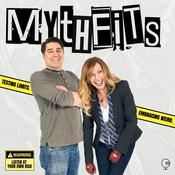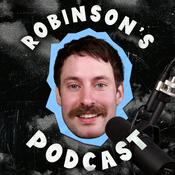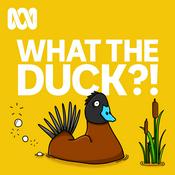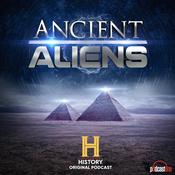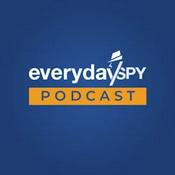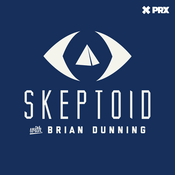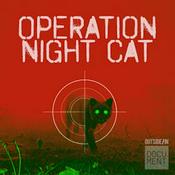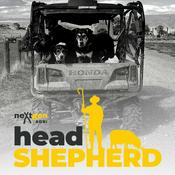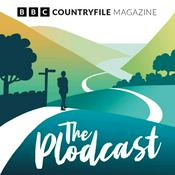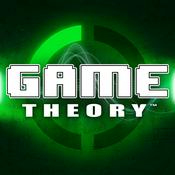120 episodes
- Summary
In this episode, Nick and Chris discuss the efficiency paradox, where being good at your job can actually hinder your chances of getting promoted. They share examples from various industries, including eye surgery and software engineering, where employees who excel at their work are often rewarded with more work instead of promotions or recognition.
They emphasize the importance of not making yourself irreplaceable and creating a single point of failure. The episode also touches on the concept of setting expectations and managing perceptions to advance in your career.
In this conversation, Nick and Chris discuss the importance of finding the right balance between maximum effort and minimal effort in the workplace. They explore the concept of the 85% rule, which suggests that putting in 85% effort consistently can lead to better results and prevent burnout.
They also touch on the significance of soft skills and building a good relationship with your boss. The conversation concludes with a discussion on the value of preparation and how it can impact performance in various fields, such as blind wine tasting and chess.
Chapters:
00:00 Introduction and Breaking News
03:02 The Efficiency Paradox: Being Good at Your Job vs. Getting Promoted
09:57 The Chase Money Glitch and Other Examples
13:59 Office Space and The Office: Depicting Workplace Realities
19:07 The Importance of Setting Expectations and Managing Perceptions
23:02 Avoiding the Single Point of Failure and Advancing in Your Career
26:12 Recommendations for Getting Promoted
26:49 Introduction: From Wine to Hawaiian and Viticulture
27:36 Promotion and Replacing Employees
28:13 The Benefits of Working for a Large Corporation
29:23 The Greatest Walmart and Subway Stories
31:23 The Importance of Bosses and Recognition
32:22 The 85% Rule: Finding the Balance in Workplace Effort
36:19 Soft Skills and Building Relationships with Your Boss
38:22 The Value of Preparation in Performance
43:41 Achieving Success with 85% Effort
53:53 Conclusion: Episode Titles and Arrays - At a glance:
Takeaways
Shrinkflation is the process of products decreasing in size or quality while maintaining the same price.
Examples of shrinkflation include smaller food packages and thinner burger patties.
Ben and Jerry's faced tax issues in Canada due to downsizing their ice cream pints.
Skimpflation refers to a decrease in product quality for the same price.
Shrinkflation impacts consumer experiences and the economy. Shrinkflation and skimflation are common practices where companies reduce the size or quality of products while maintaining the same price.
Examples include Ben & Jerry's reducing ice cream container sizes and Chipotle decreasing portion sizes.
Measuring skimflation can be challenging, as it often involves changes in product quality that are not easily quantifiable.
Companies like McDonald's and Subway are facing declining sales and customer frustration due to high prices and lack of value.
Businesses should focus on providing quality products at affordable prices to meet customer expectations and drive sales.
In this episode, we explore the concept of shrinkflation, where products decrease in size or quality while maintaining the same price. They provide examples of shrinkflation, such as smaller food packages and thinner burger patties. The hosts also mention Ben and Jerry's involvement in shrinkflation and how it led to tax issues in Canada.
They touch on the related concept of skimpflation, where the quality of a product decreases for the same price. Overall, the conversation highlights the impact of shrinkflation on consumer experiences and the economy. The conversation explores the concepts of shrinkflation and skimflation, which refer to the practice of reducing the size or quality of products while maintaining the same price.
Examples are given, such as Ben & Jerry's reducing the size of their ice cream containers and Chipotle decreasing the portion sizes of their meals.
The discussion also touches on the challenges of measuring skimflation and the impact it has on consumers. McDonald's and Subway are highlighted as examples of companies facing declining sales and customer frustration due to high prices and lack of value. The conversation concludes with the importance of businesses focusing on providing quality products at affordable prices.
Chapters:
00:00 Introduction and Casual Chat
02:57 The Decline of Dating Apps
11:16 Introduction to Shrinkflation
17:30 Examples of Shrinkflation
21:44 Ben and Jerry's Involvement in Shrinkflation
24:22 Skimpflation: Decrease in Quality
25:01 Impact of Shrinkflation on Consumers and the Economy
31:38 Examples of Shrinkflation and Skimflation
36:32 Challenges in Measuring Skimflation
39:42 Impact of Shrinkflation and Skimflation on Consumers
45:07 Struggles of McDonald's and Subway
48:25 The Importance of Providing Value to Customers - In this episode, Nick and Chris discuss black swan events, which are rare and unpredictable events with significant consequences.
They explore the criteria for a black swan event and provide examples such as the 2008 financial crisis and the 9/11 terrorist attacks. They also discuss the predictability of these events and the impact they have on society and the global order.
The conversation explores the concept of black swan events and their impact on history and society. It discusses various examples of black swan events, including the South Sudan basketball team playing the wrong national anthem, the 9/11 terrorist attacks, and the COVID-19 pandemic.
The conversation also touches on the US intelligence community's Global Trends reports, which predict future trends and potential black swan events. It concludes with a discussion on the limitations of predicting and preparing for black swan events.
Chapters
00:00 Introduction and Multilingual Podcast
01:17 Marvel Casting Robert Downey Jr.: A Cry for Help?
06:16 The Concept of Black Swan Events
14:09 Examples of Black Swan Events: 2008 Financial Crisis
19:00 Nassim Nicholas Taleb's Definition of Black Swan Events
23:45 9/11: A Black Swan Event
28:03 Introduction to Black Swan Events
29:58 Examples of Black Swan Events
36:29 The Role of US Intelligence in Predicting Black Swan Events
45:19 Geomagnetic Storms and Other Potential Black Swan Events
47:42 The Consequences of US Disengagement - In this episode, the hosts discuss short selling and short squeezes in the stock market.
They provide examples from movies like 'The Big Short' and 'Casino Royale' to explain the concept of short selling. They also explain the mechanics of short selling, including opening a brokerage account, borrowing stocks, and monitoring account equity.
The hosts mention the GameStop short squeeze as an example of how short selling can backfire. They emphasize the potential for making a profit through short selling, but also the risks involved. In this conversation, the hosts discuss the real-life example of short squeezing in the case of Herbalife and the famous battle between Bill Ackman and Carl Icahn.
They explain the concept of short selling and short squeezes, highlighting the risks and complexities involved. They also touch on the role of activist investors and the moral implications of short selling.
The hosts emphasize the excitement and addictive nature of short squeezing, but caution against the high risks involved. They conclude by discussing the historical origins of short selling and its impact on financial crises.
Short selling involves betting against a stock and profiting from its decline in value.
IN THIS EPISODE:
The mechanics of short selling include opening a brokerage account, borrowing stocks, and monitoring account equity.
Short selling can be profitable, but it also carries risks and can backfire, as seen in the GameStop short squeeze.
Movies like 'The Big Short' and 'Casino Royale' provide examples of short selling in different contexts. Short squeezing involves betting against a stock and profiting from its increase in value, often driven by investor behavior.
Short selling is a risky and complex practice that can have significant consequences for both short sellers and the companies involved.
Activist investors play a role in short squeezes by buying stakes in companies and attempting to change their direction or value.
Short selling has a long history, dating back to the 17th century, and has been associated with financial crises throughout history.
While short squeezing can be exciting, it is important to understand the risks and complexities involved before getting involved in such practices.
Chapters
00:00 Introduction and Haircut News
03:12 Discussion on Summer Weather
06:48 Introduction to Short Selling and 'The Big Short'
10:08 Short Selling in 'Casino Royale'
15:18 Mechanics of Short Selling
19:10 Short Selling Strategies and Risks
21:47 GameStop Short Squeeze
25:58 Understanding Short Selling and Short Squeezes
28:30 The Fundamentals of Stock Behavior
31:51 The Mechanics of a Short Squeeze
39:14 The Role of Company Success in Short Squeezes
47:20 The Historical Origins of Short Selling
More Science podcasts
Trending Science podcasts
About Game Theory
Speakeasy conversation about strategy, competition, economics, history, and policy from two non-experts.
The episodes include some actual economic Game Theory such as the Prisoner's Dilemma, the Traveler's Dilemma, and the Public Good game. Episodes also include conversations on dilemmas in TV/Movies, sports, and board/card games, as well as the history of military, intelligence (spies), politics, and economics.
The objective is simply to think critically about how people make strategic choices regarding the world around them and most importantly, about the people around them.
Podcast websiteListen to Game Theory, The Rest Is Science and many other podcasts from around the world with the radio.net app
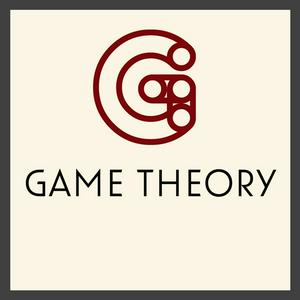
Get the free radio.net app
- Stations and podcasts to bookmark
- Stream via Wi-Fi or Bluetooth
- Supports Carplay & Android Auto
- Many other app features
Get the free radio.net app
- Stations and podcasts to bookmark
- Stream via Wi-Fi or Bluetooth
- Supports Carplay & Android Auto
- Many other app features


Game Theory
Scan code,
download the app,
start listening.
download the app,
start listening.











